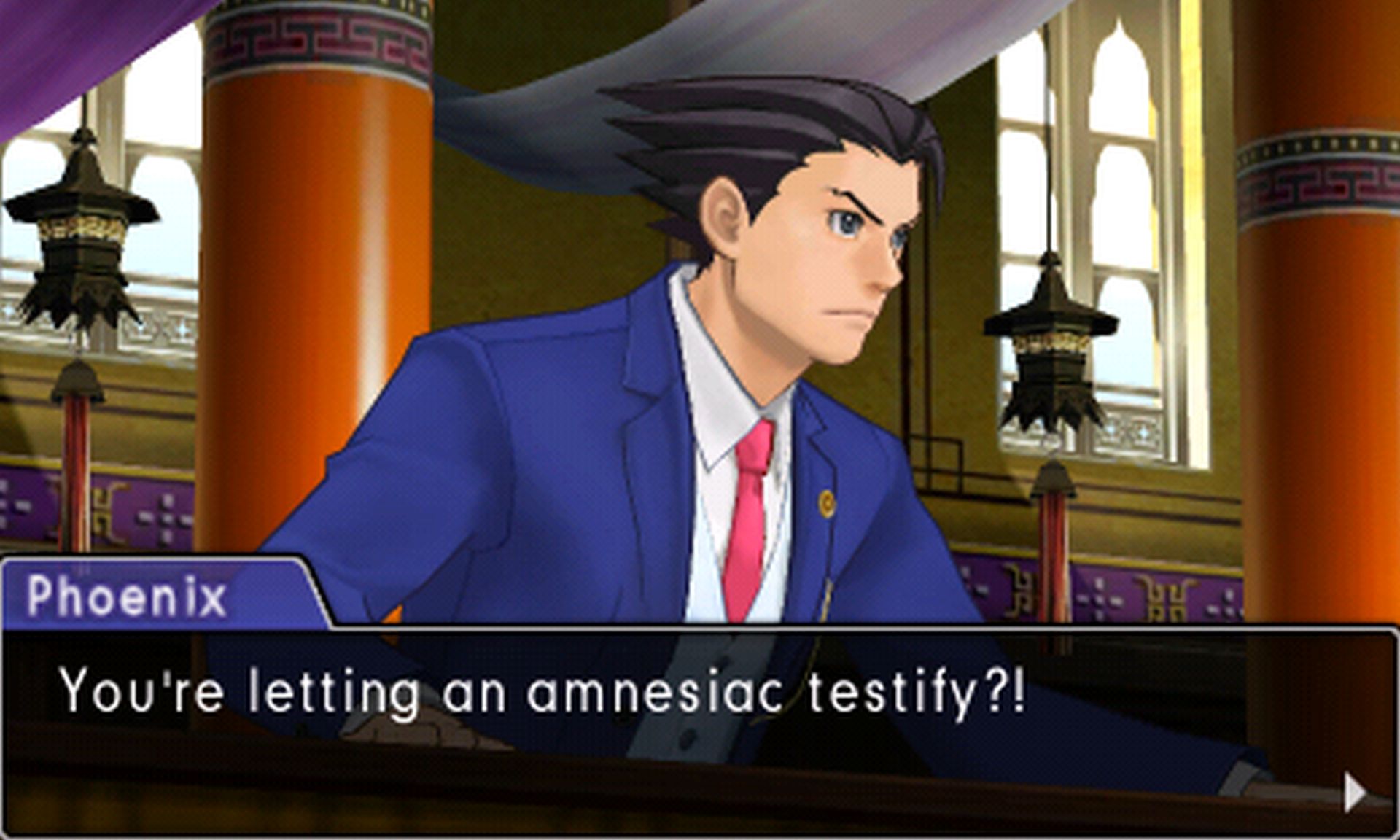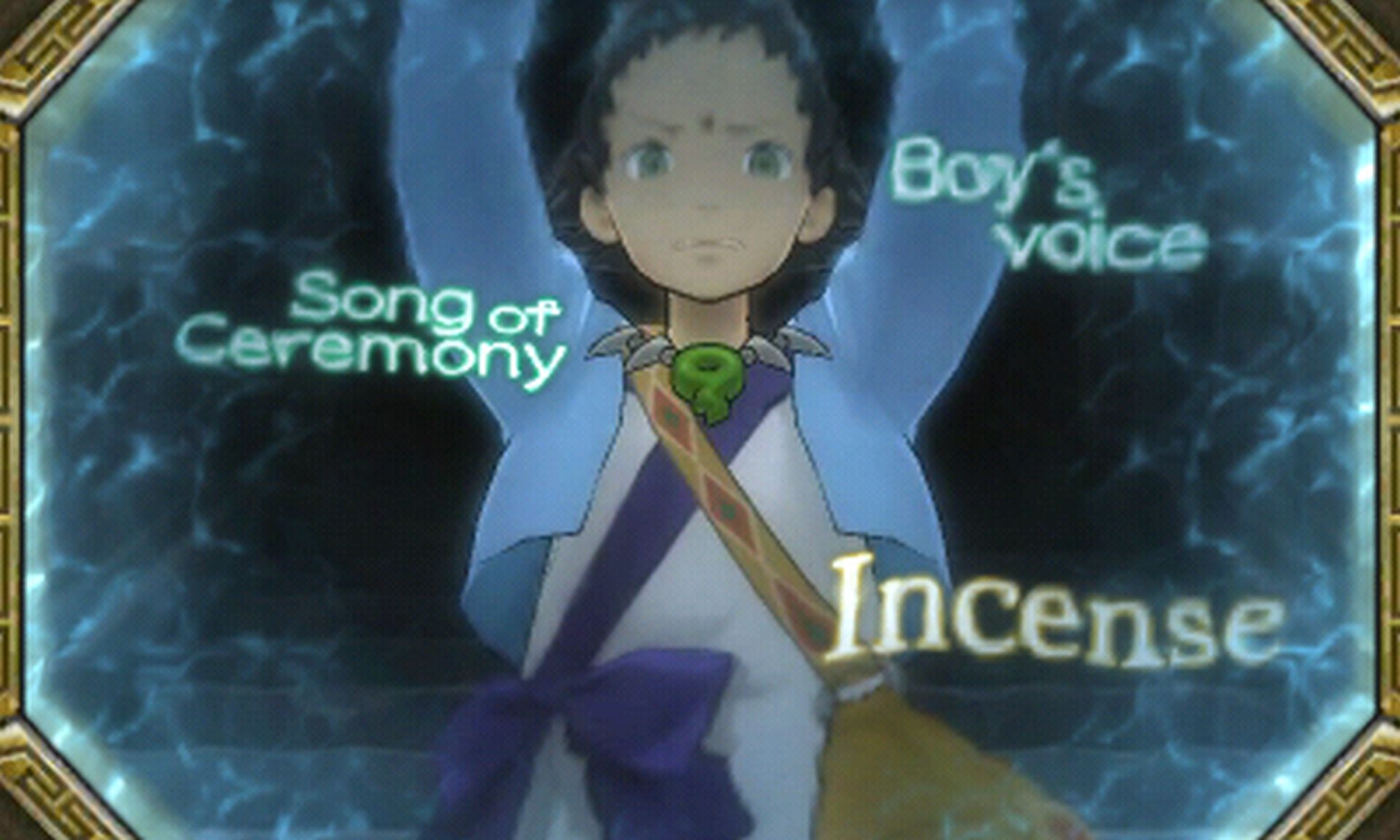↵No objections here.
In a previous life (as far back as 2008), I was a litigation paralegal. I have been in the courtroom more times than I care for, and I have prepped ten times as many cases for a trial that never happened. It's because of this that I can't stand to watch any courtroom dramas on TV or in film. I know they have to spiffy it up to make the courtroom exciting, but the amount of factually incorrect info and blatant disregard to legal procedures drive me bonkers.
So you can imagine how much the Phoenix Wright: Ace Attorney games drive me just as crazy. I'm yelling at the characters as much as they yell, "Objection!" You can't do that! They can't do that! That's illegal! That's not what cross-examination is! Gah, what are you guys doing?
That said, though, I find myself enjoying the Ace Attorney games despite how much they are nothing like a court of law. Each time Phoenix Wright (or in this case, Apollo Justice as well!) finds himself in court, he essentially conducts an entire criminal investigation before the judge. He researches documents, questions all witnesses, and does more detective work than any of the police officers they parade onto the witness stand.
While none of that is how criminal procedure works, I admit it's incredibly entertaining and I love doing the work of both the police and the attorney in a couple of hours for case. Normally, these investigations would take several months between all the legal documents, court filings, hearings, depositions, etc., and as a paralegal, I was never really part of any of the fun stuff. I was a document jockey and personal litigation pack-mule for the attorney. The Phoenix Wright games, their inaccuracies aside, are great puzzle games for murder mysteries, and Phoenix Wright: Ace Attorney – Spirit of Justice (SoJ) is no exception.
SoJ pits the famous Mr. Wright in a foreign country, Khura'in, where they hate all defense attorneys and rely solely on Divination Séances to determine the guilt or innocence of the accused. Phoenix is visiting because Maya is completing her priestess training, and while sightseeing, he becomes involved in a bizarre murder case. In this case, he is the first lawyer to defend an accused for over twenty years. In doing so, he challenges the country's religion and government in just one trial.
Back home in the States, his associate Apollo Justice finds himself in a trial without the aid of his mentor. Not only that, but he's defending Wright's adopted daughter, and the Wright Anything Agency itself is at stake if Justice loses. The prosecutor in Justice's case is a visiting prosecutor from Khura'in, tying his situation with Wright's. Through five cases, the player will unwind an unbelievable mystery surrounding Khura'in and will even have to deal with a trial where Justice and Wright are on opposite sides. So much hand-banging and sweating.

If you've played a Phoenix Wright game before, you should feel at home here. Most of the gameplay is exactly the same. The player will survey a crime scene, question witnesses, and gather as much evidence as possible to bring to court. When a witness testifies, the player will hear the testimony once, and then they will have an opportunity to "cross-examine." During the cross-examination, the player will run over each statement of testimony and press for more information, and/or present evidence to show a contradiction with the statement. With Justice's cases, he has Athena Cykes accompany him, and sometimes she will use her Mood Matrix to analyze the true emotions of the witness and their statements. She calls it "therapy," which makes me violently twitch, but okay, it's an entertaining method of solving puzzles.
If the player wastes too much of the court's time by presenting incorrect evidence or drawing the wrong conclusion, the Judge hammer down a penalty. Too many penalties, and a Guilty verdict is made, and the game is over. Fortunately, the player can try again from the most recent part of the trial, and upon doing so, starts with a fresh batch of penalty badges.
There doesn't seem to be a limit to how many times you can fail and retry, either. At one point, I wanted to see if I would actually get a GAME OVER screen and be forced to reload a previous save. I retried five times with no issue, so I assume you can retry as many times as you wish. It kind of makes the penalties seem pointless, as well as the ability to save at any time during the trial. If there's no real punishment other than having to run through a cut-scene again and again after using up all the penalties, then why not burn through them with guesswork? There doesn't appear to be any reward for getting through a trial with no penalties taken either, further diminishing the purpose and any urgency of the penalties.

But it's not all cookie-cutter from previous Phoenix Wright titles. Players will also have to interpret and find discrepancies in Divine Séances from the Royal Priestess of Khura'in. The Priestess Rayfa Padma Khura'in will conduct a séance in the courtroom, showing the last moments of a victim's life. In Khura'in's history, they always use these to convict the accused of murder. These last moments show the last thing the victim sees, sounds they hear (but no specific dialogue), and even what they smell. As Wright shows in the very first case, these séances are extremely accurate, but how they are interpreted is far from foolproof.
Phoenix Wright: Ace Attorney – Spirit of Justice is the first game in a long time that I just could not put down. No matter how tired I was, I was determined to get through just the next witness testimony before bed. And then that turned into the next one. And then I refused to sleep before this particular trial was over. Suffice to say, SoJ does the Phoenix Wright series justice (see what I did there?), and it's sure to be one of the most popular puzzle games this year. Just please don't think this is how a day in court goes. SoJ does many things well, but accurately depicting the legal system is by far not one of them, not that it means to.
-
Challenging puzzles
-
New Divination Seance gameplay
-
Hilarious character reactions
-
Puns
-
Penalties appear inconsequential
-
Not too newcomer-friendly







